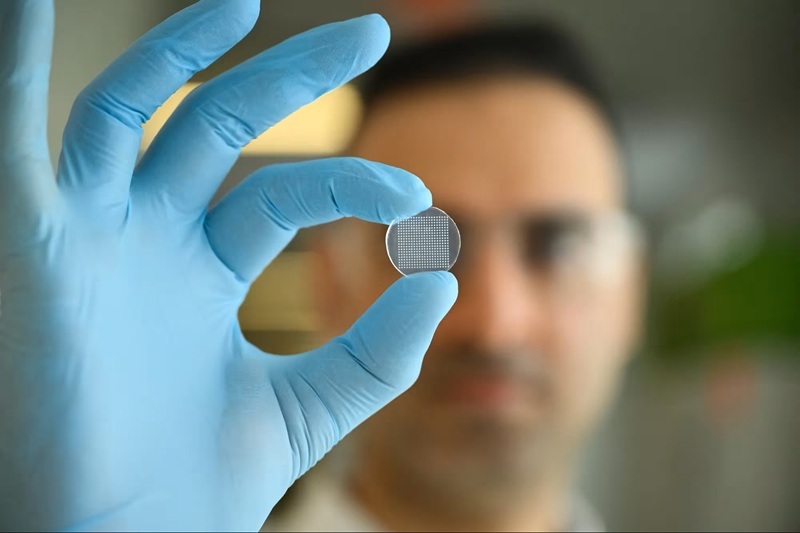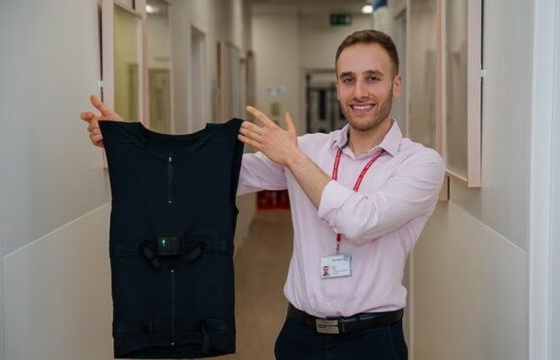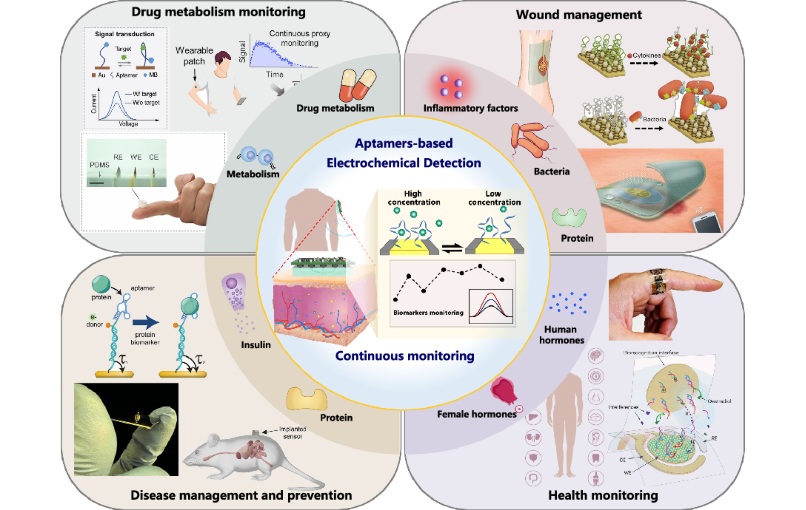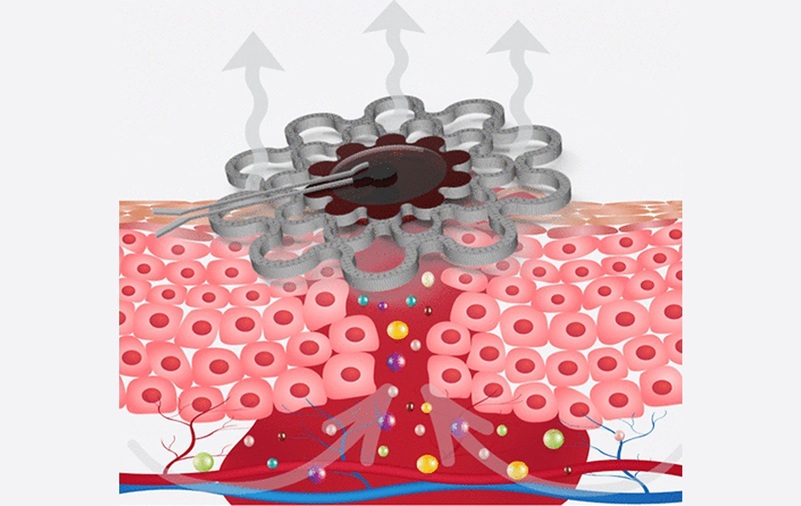World-First Device to Remove Bacterial Biofilm Inside Endoscopes
|
By HospiMedica International staff writers Posted on 23 May 2024 |

Endoscopes, which are long, thin instruments equipped with a light and camera at one end, are essential for internal medical examinations. Despite advancements, cleaning these tools sufficiently remains a significant challenge. Due to the sensitivity of their materials and electronics, endoscopes cannot undergo standard sterilization procedures applied to other medical and laboratory equipment. They require meticulous, lengthy cleaning processes to avoid contamination. However, even with rigorous cleaning efforts, endoscopes can retain bacterial biofilms—dense clusters of bacteria that adhere to surfaces and each other, protected by a slimy layer. These biofilms exhibit increased resistance to both antibiotics and disinfectants, potentially leading to severe infections or even patient deaths despite thorough decontamination efforts. Now, a new device aims to improve the endoscope cleaning process and prevent contamination by automatically removing bacterial biofilm inside which can cause infections.
Aston University (Birmingham, UK) is collaborating with PFE Medical (Staffordshire, UK), a company specializing in medical products, to advance the cleaning of endoscopes. They are exploring whether fiber optic probes equipped with ultraviolet (UV) light can effectively detect biofilms inside endoscopes. This research could lead to the creation of a pioneering device that inspects endoscopes and ensures they are clear of biofilms before use, thereby enhancing patient safety. This initiative builds on a previous successful collaboration between Aston University and PFE Medical, which developed a device called Khamsin that significantly enhanced the endoscope cleaning process and is currently being tested in real-world settings. This new partnership will leverage PFE Medical’s expertise in endoscope functionality along with Aston University's Institute of Photonic Technologies (AIPT), renowned for its leading-edge research in photonics, medical lasers, and bio-sensing technology, to potentially transform endoscope safety and cleanliness in healthcare settings.
“Biofilm is a hidden killer, and we have no way to detect it currently without completely taking apart these medical devices,” said Rob Hartley, Managing Director of PFE Medical. “There is rising concern about microbial resistance and to find a way to objectively detect bacteria would be a true innovation that would have impact around the world.”
“It was exciting to go to PFE Medical recently and see Khamsin in action, knowing that this new product came from a project that only finished last year,” said Professor Kate Sugden, Deputy Dean of the School of Engineering & Applied Sciences who will lead the project. “It will be a challenge to match the success of the last project, but I am optimistic that we can draw on the combined talent and facilities once again to make a significant contribution to solving this problem.”
Related Links:
Aston University
PFE Medical
Latest Surgical Techniques News
- Skull Implant Design Could Shape Surgical Outcomes
- Redesigned Surgical Laser Cuts Bone Deeper and Faster Than Before
- New Method Offers Less Invasive Detection of Susceptibility to Rare Anesthesia Reaction
- Laser Ablation Plus Immunotherapy Improves Survival in Recurrent Glioblastoma
- Brain Implant Records Neural Signals and Delivers Precise Medication
- AI-Based OCT Image Analysis Identifies High-Risk Plaques in Coronary Arteries
- Neural Device Regrows Surrounding Skull After Brain Implantation
- Surgical Innovation Cuts Ovarian Cancer Risk by 80%
- New Imaging Combo Offers Hope for High-Risk Heart Patients
- New Classification System Brings Clarity to Brain Tumor Surgery Decisions
- Boengineered Tissue Offers New Hope for Secondary Lymphedema Treatment
- Dual-Energy Catheter Brings New Flexibility to AFib Ablation
- 3D Bioprinting Pushes Boundaries in Quest for Custom Livers
- New AI Approach to Improve Surgical Imaging
- First-Of-Its-Kind Probe Monitors Fetal Health in Utero During Surgery
- Ultrasound Device Offers Non-Invasive Treatment for Kidney Stones
Channels
Artificial Intelligence
view channelCritical Care
view channel
Painless Microneedle Skin Patch Monitors Immune Health
Studying immune responses typically requires blood draws or skin biopsies, both of which are invasive and sometimes uncomfortable. Many critical immune cells reside in tissues such as the skin, making... Read more
Smart T-Shirt Uses AI to Enhance Detection of Heart Rhythm Disorders
Inherited heart rhythm disorders are often missed because arrhythmias may not occur during brief testing or can appear normal on routine scans, allowing risk to go undetected. As a result, delayed diagnosis... Read morePatient Care
view channel
Revolutionary Automatic IV-Line Flushing Device to Enhance Infusion Care
More than 80% of in-hospital patients receive intravenous (IV) therapy. Every dose of IV medicine delivered in a small volume (<250 mL) infusion bag should be followed by subsequent flushing to ensure... Read more
VR Training Tool Combats Contamination of Portable Medical Equipment
Healthcare-associated infections (HAIs) impact one in every 31 patients, cause nearly 100,000 deaths each year, and cost USD 28.4 billion in direct medical expenses. Notably, up to 75% of these infections... Read more
Portable Biosensor Platform to Reduce Hospital-Acquired Infections
Approximately 4 million patients in the European Union acquire healthcare-associated infections (HAIs) or nosocomial infections each year, with around 37,000 deaths directly resulting from these infections,... Read moreFirst-Of-Its-Kind Portable Germicidal Light Technology Disinfects High-Touch Clinical Surfaces in Seconds
Reducing healthcare-acquired infections (HAIs) remains a pressing issue within global healthcare systems. In the United States alone, 1.7 million patients contract HAIs annually, leading to approximately... Read moreHealth IT
view channel
EMR-Based Tool Predicts Graft Failure After Kidney Transplant
Kidney transplantation offers patients with end-stage kidney disease longer survival and better quality of life than dialysis, yet graft failure remains a major challenge. Although a successful transplant... Read more
Printable Molecule-Selective Nanoparticles Enable Mass Production of Wearable Biosensors
The future of medicine is likely to focus on the personalization of healthcare—understanding exactly what an individual requires and delivering the appropriate combination of nutrients, metabolites, and... Read moreBusiness
view channel
Medtronic to Acquire Coronary Artery Medtech Company CathWorks
Medtronic plc (Galway, Ireland) has announced that it will exercise its option to acquire CathWorks (Kfar Saba, Israel), a privately held medical device company, which aims to transform how coronary artery... Read more
Medtronic and Mindray Expand Strategic Partnership to Ambulatory Surgery Centers in the U.S.
Mindray North America and Medtronic have expanded their strategic partnership to bring integrated patient monitoring solutions to ambulatory surgery centers across the United States. The collaboration... Read more
FDA Clearance Expands Robotic Options for Minimally Invasive Heart Surgery
Cardiovascular disease remains the world’s leading cause of death, with nearly 18 million fatalities each year, and more than two million patients undergo open-heart surgery annually, most involving sternotomy.... Read more
















